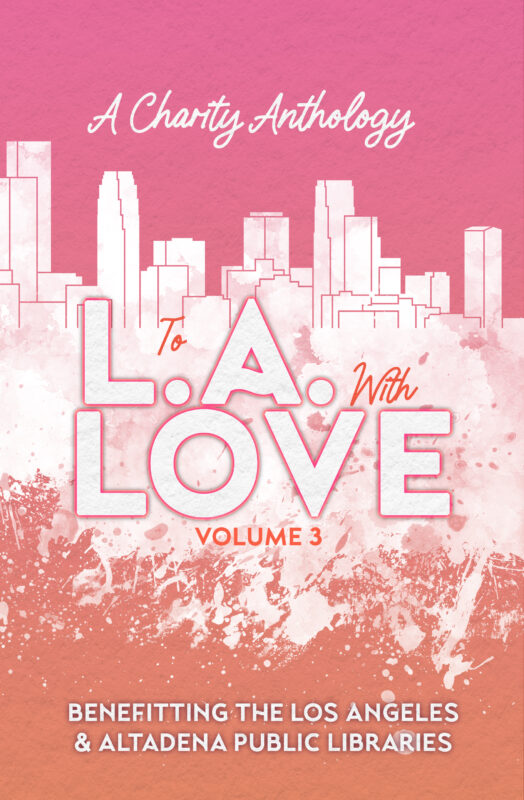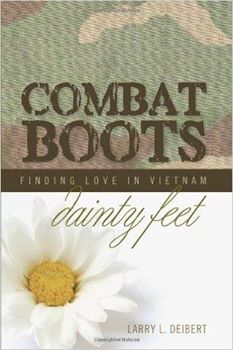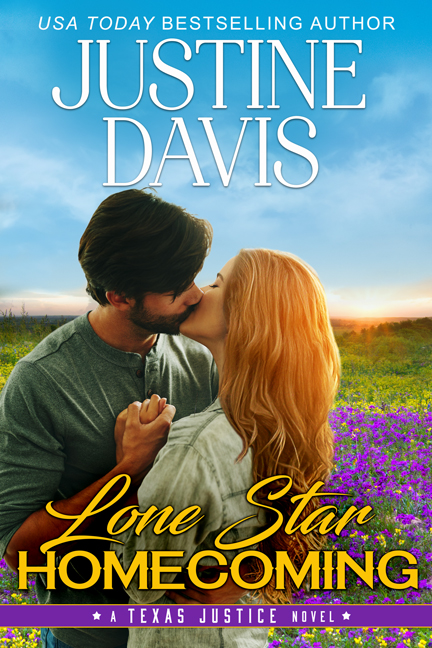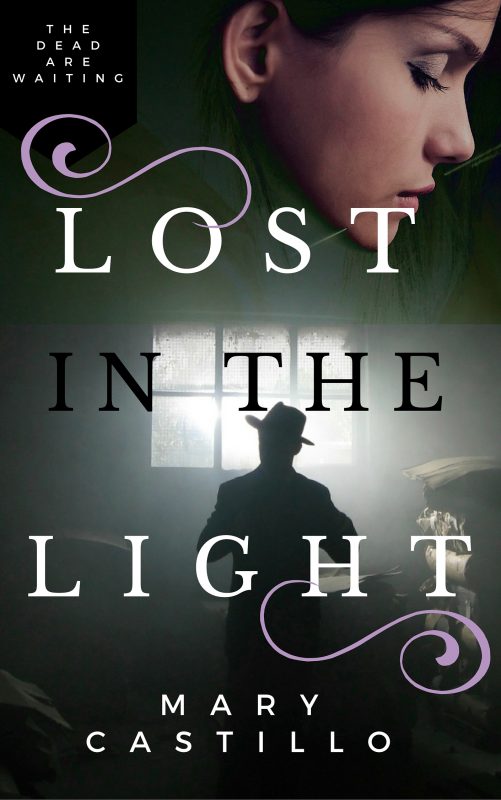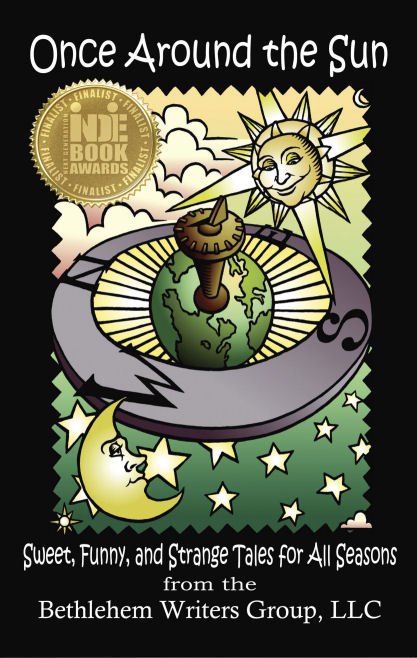Notes from Val’s Desk
January 3, 2009 by A Slice of Orange in category Archives tagged as Motivational, Notes From Val's Desk, PlottingTo-Do Lists, Plans, Plots (and Maps)
If you called me on New Year’s Day I would tell you that I’m sitting at my desk stacking various bits of paper into little groups. I have a cup of coffee, soft music is playing and I have gently pushed my fuzz-ball of a cat off these mini stacks of paper for the third (but not last) time. I am seriously engaged in my annual project—sorting through all the “to do” notes I made the previous year.
Some to-do’s I can happily check off as done, some are now little wads of paper piling up in my trash can, and some (that apparently were not that important) will be moved to my nice, new 2009 calendar for a second chance. However, there are a few—showing their age–that have moved from year to year to year. Although these particular “to do’s†have a prominent place on my bulletin board, for some reason known only to my subconscious, they were not given the priority they deserved.
- Here’s one (written on a bright green 3×5 card with push pin holes in it): “plot my novel (focus on historical timeline)â€
- Here’s another: “get synopsis and first three chapters done by the contest deadline†(this note was clipped to a now-expired entry form)
- Yet another: lose weight (that’s another story)
These three faithful notes are definitely moving to 2009. Can you spell o-p-t-i-m-i-s-t?
I seem to be a writer who can come up with a great idea, blast through the first, second and even third chapters without hesitation but then, wham! I always hit the proverbial brick wall. And, it seems to take a ridiculously long time for those little dings and bumps impressed in my forehead to smooth out. The momentum is lost and time passes by.
Why? It’s obvious that I didn’t have a plan (or a plot for that matter). I didn’t know where my story was going because I didn’t have an outline, plot, plan, map or whatever label you fancy. For a note taker and list-writer like I am, this situation could have been avoided. Why don’t I take the time to write down some simple directions? I work for an architect. I know the value of those detailed drawings and sketches—the step-by-step illustrated information absolutely necessary to get a structure built. I also love maps. I find myself in awe of intricate old/antique maps, especially the ones drawn in pen-and-ink on sepia-colored paper where the map maker/artist has detailed every single line–every twist and turn. Winding roads, streets and lanes, hills and dales are precisely “plotted” so the traveler knows exactly where to go to arrive at their destination.
So I compared this map idea to plotting. Many writers suggest creating a plot outline. It doesn’t have to be a big deal. Why not keep it simple (beginning-middle-end), print it out and post it near your computer screen? Or, if you absolutely must, you can go crazy and get a big white board and cover it with brightly colored sticky notes–a different color for characters, settings, viewpoint, scenes, dark moments, bright moments and even plot lines. (Believe me, I read this once in a how-to-write article.) If I could remember where I read the following quote, I’d give proper credit: “A good plan is like a road map: it shows the final destination and usually the best way to get there.”
So…..create your “map†and start following the directions. It won’t cost a dime to revisit your old notes and files. We are all at the beginning of a whole new year with 362 unused days in it. Claim some of those days for yourself and start, re-start, edit, revise, finish, or submit your novel! (Think RWA Pro status or better yet, First Sale!) Notes from Val’s Desk will keep you posted on my 2009 writing commitment (among other things). In the meantime, what are your plans to map out directions for 2009? Is a plot in your plans?
Val
Here’s another little slice of orange…..on Saturday, January 17, 2009, OCC (Orange County Chapter-RWA) is sponsoring its first special event of 2009..…a “One-Day Plotting Workshop” presented by our very own OCC member, multi-published author and current RWA National President Diane Pershing. Diane promises to get you there to those final climactic scenes. She will encourage you to think, she will help you to create, and she will make you laugh!
Those of us who have had an opportunity to hear what Diane has to say about the craft of writing will agree: Don’t miss this excellent opportunity to get your plot moving along (or move along and get a plot). You will see me there with my notebook and pad of sticky notes. Enroll today before it’s too late.
Visit http://www.occrwa.org for all the details and enrollment information.
0 0 Read moreJanuary President’s Message
January 1, 2009 by A Slice of Orange in category Archives tagged as President's MessageBy the time you read this, the year will have wound to a close, and the lovely, warm CHAOS of the holidays will be just another sweet memory – however at this moment it’s still two days before Christmas and I still have housecleaning, shopping, and food to prepare because they’re all coming here! Stop the insanity!!!!
Okay… I’m breathing…
So, did you take the online class for organizing your life? I should have… I might have gotten a little more writing in over the past couple of weeks. Then again… What with kids (plural) moving back in, kid rolling my car, (he’s okay) kids (or me) cracking the window on the rental car after forgetting to get the insurance, kids borrowing another car and denting it so we have to replace the chrome bumper before returning it, Dad having emergency surgery (he’s okay), and oh yeah – shopping, cleaning, and working full time, I really needed to be organized (or hire a keeper – which I can’t afford).
Still, I’m wonderfully fortunate that my son walked away without a scratch (only his psyche is bruised), my dad came through the surgery (four days later than he was supposed to… but he’s home now). And I’ll be surrounded by family for the holiday (wait… am I counting that as a blessing or a curse?) And I actually did get in a couple of pages of writing.
If you believe in New Years resolutions, perhaps a very key thing for all of us is to get organized. Your chapter is going to be pursuing this. Carol Prescott and Julie Hurwitz have volunteered to develop a strategic plan for all of us. This will include setting organizational goals based on a survey that you will receive within the next month or so.
This will be your plan for your organization, so I hope you will all find the time to fill out the survey, and tell us what is important to you. What entices you to come to meetings? What programs would you like to see? What on-line courses would you like to have made available to you? How else might you like to be involved? What else should we be doing?
The next resolution that you should make ought to be about you and your writing. What’s your goal for the year? How about this month? 1 page a day? Maybe 2? Maybe 25 pages a week? Peer pressure can help, if you let it. Join a critique group. Or buddy up with a friend.
Or, come to the meeting and take advantage of “Write for the Money.†Set a goal for yourself, drop a $1.00 in the jar and by the February meeting, complete your goal, tear off the slip and drop it into the box for the drawing. You win whatever money that is dropped into the jar that month! See you win two ways! You are compelled to meet your goals and if we draw your name, you win money!
One way or the other, consider increasing your writing output this year! Who knows, you might be the next person getting a rose at the podium!
Randi
0 0 Read moreWishing you a very Happy Holidays…And taking the opportunity to present Joan Marlow Golan, Executive Editor
December 24, 2008 by A Slice of Orange in category Archives tagged as Harlequin, Inspirational fiction, Isabel Swift, Joan Marlow Golan, Steeple HillI wanted to take the opportunity to introduce you to a remarkable woman: Joan Marlow Golan, Executive Editor, Steeple Hill Books. It’s the season to be thankful for our many gifts, and I consider Joan one of them. Here’s Joan!
“As Executive Editor of Steeple Hill, I manage Harlequin’s inspirational books imprint, with an editorial staff of five in addition to myself. The Steeple Hill imprint consists of three original series, Steeple Hill Love Inspired ®, Steeple Hill Love Inspired Suspense ® and Steeple Hill Love Inspired Historical ®–LIH will be launching this February–as well as a single title program that includes Steeple Hill Women’s Fiction and Steeple Hill Cafe®.
“The greatest asset at Steeple Hill is our authors. Steeple Hill authors have won the highest awards in inspirational publishing, the Christy Award and the RITA® Award, as well as myriad prestigious awards from the American Christian Fiction Writers, various regional RWA awards and other honors. Our books have been featured in the media, including The New York Times, USA Today and on The Today Show and even Jon Stewart’s The Daily Show!
“In addition to managing the imprint, I am the proud editor of Steeple Hill authors Hannah Alexander, Judy Baer, Vanessa Del Fabbro, Annie Jones, Catherine Palmer and Janet Tronstad as well as HQN New York Times bestselling author Linda Lael Miller and radio personality Delilah, with whom I’m developing non-fiction titles for Harlequin’s new non-fiction program. Her first title, Love Matters, is out right now.
Q: What is your work history?
A: I’ve celebrated my 10th anniversary at Harlequin—in some ways I feel as if I’ve been here forever, because it’s such a good fit, it feels like “home.†My first job here was as Senior Editor of Silhouette Romance, and then I became Senior Editor of Silhouette Desire. In 2003, I was asked to manage the Steeple Hill imprint, of which I’m currently Executive Editor.
“I began my publishing career in 1979. I’d spent six years getting a doctorate in English and American Literature from Harvard University and was a diehard bookaholic. When I realized that there was a job that involved actually getting paid for reading books, I knew that was the job for me. I was determined to break into publishing despite being told by many that I was “overqualified and underexperienced†for an entry-level job.
“Ultimately, my entrée into the industry was as a Book of the Month Club reader. It took me three months to get that position—I kept calling the BOMC Editor-in-Chief, Al Silverman, and since I knew he was a Yankees fan would chat with him about Reggie Jackson, Billy Martin and company, and every month he’d tell me he wasn’t hiring but to call him back next month.
“My first full-time job was as a nonfiction editor at now-defunct Hart Publishing Company, where I edited the bestseller THE 100: A Ranking of the Most Influential Persons in History by Michael Hart, which has spawned many imitators. I went on to fiction, and then I discovered romance publishing—it was love at first sight, and for most of my publishing career I’ve been a romance editor.
“I began my romance publishing career with Richard Gallen, a packager, and then became an editor at Berkley’s Second Chance at Love line, which I eventually managed. When my daughter was a toddler, I decided corporate life wasn’t sufficiently family friendly and mommy-tracked myself for seven years, continuing to freelance.
“Working at home eventually got lonely, but I still wasn’t ready to reenter corporate life, so I got into religious publishing as an editor for Catholic publisher Liguori Publications. After four years, Liguori decided to close their New York office, and by that time I was ready to come back to the corporate world—and Harlequin was ready for me. My friends think I have the dream job . . . and I’m inclined to agree! I especially value the warm relationships built up over years of working together, both in the author/agent community and with Harlequin colleagues.
Q: What are you looking for in submissions?
A: Please note that while we accept all submissions for Steeple Hill series, we do not accept unsolicited manuscripts for the single title program, which includes Steeple Hill Cafe®. As an editor I look for:
– Characters I care about
– A compelling, distinctive author voice
– A story that hooks me with the first sentence and won’t let me put it down.
Q: Do you have any advice for writers for Steeple Hill?
A: Yes.
– Please read our guidelines before submitting to Steeple Hill:
Steeple Hill Love Inspired
Steeple Hill Love Inspired Suspense
Steeple Hill Love Inspired Historical
Steeple Hill Women’s Fiction
Steeple Hill Cafe
You will also find them on eHarlequin.com—scroll to the bottom of the homepage and click on Writing Guidelines.
– Remember that Jesus got His points across by telling wonderful stories and do likewise.
– Keep in mind that if you do not interest an editor on page one, they aren’t going to read much more (if the editor is me, I am not going to read any more).
– Try to read your work not like an author but like a consumer who has picked it up in the bookstore and is sampling to decide whether or not to buy it.
– The best way to endear yourself to your editor is to deliver your mss. on time.
Q: What are your favorite childhood novels?
A: My all-time favorite novel, which I reread every few years, is LITTLE WOMEN. I also consider it the ur-inspirational novel—not only are many of the chapters named after elements from John Bunyan’s Christian classic PILGRIM’S PROGRESS, but the four March sisters each make an inner pilgrimage to spiritual enlightenment and each finds her mission.
It’s also a very well-written book with a dynamite first line—“’Christmas won’t be Christmas without any presents,’ †grumbled Jo, lying on the rug.â€
At various times in my life I’ve identified with each of the sisters, but now I identify most with Marmee—who is a great role model for me as a manager. I have to admit, for me life doesn’t get any better than lying in bed rereading LITTLE WOMEN—I find the March family endlessly fascinating, not to mention never having gotten over my childhood crush on boy-next-door Laurie.
– Another book I adored as a child and is back in print again today is HALF MAGIC by Edgar Eager. Four children, whose widowed mom works so that they are often left to their own devices, find a magic coin that grants wishes—but only by halves. This leads to some terrific adventures and profound life lessons for all of the children. What I really love about this book is the author’s voice. I used to read HALF MAGIC to children I babysat for and they all loved it, too, as did my own kids. I enjoyed it just as much rereading it as an adult. If you’ve never read it, treat yourself!
– Both of these beloved books have great dialog. Dialog is really important in making a novel work—it can provide sparkle, humor, reveal character and fill in the backstory as well as making the pace sufficiently brisk that the reader doesn’t get bored.
Q: Is being an editor what you imagined when you first decided to become one?
A: Actually, not so much. I thought all editors did was read and edit! So what do I do besides read and edit? I participate in a lot of meetings and spend untold hours responding to and generating email, and using my computer, with which I have a love-hate relationship. I also talk on the phone, which I still prefer to email for a real discussion (I respond to the human voice and tend to “hear†books as I read them).
Q: Is there any activity you prefer to reading?
A: I do enjoy other forms of entertainment and am particularly passionate about opera and theater. In the years since my husband died, I have become an avid gardener as well, and planted over 400 bulbs this fall so that I will have “Little Amsterdam†in front of my house in the spring. I enjoy traveling and spent a memorable week in Rome, Italy last year. I also take a Qi Gong class, meditate, and say the Chaplet to the Divine Mercy, the prayer I feel especially called to, every day, and I’m a lector at my church.
But to answer the question, no, nothing does it for me like a good book—and I founded a bookclub in my community that has been meeting for over a decade! I especially enjoy poetry and biography in addition to fiction, with Linda Pastan and Mary Oliver my two favorite contemporary poets at the moment.
My favorite quote is by Logan Pearsall Smith: “People say that life is the thing, but I prefer reading.†Amen!
May visions of sugar plums dance in your head….
0 0 Read moreAdvice to Myself as a Newbie Author
December 22, 2008 by A Slice of Orange in category Archives tagged as Advice to Myself as a Newbie Author, Sandra Kayby Shauna Roberts
http://ShaunaRoberts.blogspot.com
Today’s Guest: Sandra Kay
Sandra Kay’s first book, Heart of Stone, was released in digital format on October 3rd by The Wild Rose Press. The print release will be on January 3, 2009. Heart of Stone won First Place in the Fort Bend (Texas) Writer’s Guild contest. She has been writing contemporary romance for about nine years and has belonged to the Orange County Chapter of Romance Writers of America since 2000. She served on the Board of Directors for three years, two as Ways and Means Director and one as Secretary.
Sandra, if you could travel back in time to before you were first published, what advice would you give yourself?
 If I could go back in time to before I was first published. . . .
If I could go back in time to before I was first published. . . .
An interesting question—one that I had to think extensively about. As a first-time published author, I read with interest the insightful answers given by the multipublished authors of OCC. And, that’s where I found my #1 answer:
1. I would not be so reticent about networking with published authors. What a font of information we have readily available in OCC. From Ask an Author, to critiques, to workshops, and simply answering questions, these ladies volunteer their time and expertise to help others obtain the dream.
I would also urge new writers to:
2. Never stop learning. I have to say that I did follow this rule. I took Creative Writing classes. I scribbled copious notes while listening to our meeting speakers. I attended workshops. And I continue to take online classes, most recently one on HTML to make promotion and managing my Website easier.
3. Find a good critique group or partner. Make sure that you don’t settle into a group that isn’t really helping you, just because you’ve become comfortable with it. That can be very detrimental to your writing career. Find a way to politely bow out of that type of situation and move on to a group or partner that will give you constructive critiques. If you can connect with a group that has at least one published author in it, you will benefit from that person’s knowledge of the industry.
4. Become active in your local chapter of RWA. I began by selling used books at OCC and went on to serve for three years on the Board of Directors. I learned so much from the group of ladies I served with. And serving makes it easier to meet knew members.
5. Keep on writing. When you break through and sell that first book, you want to have others in reserve. Heart of Stone is part of a four-book series, and I had written three of them before I sold the first one. You don’t want to find yourself desperately playing catch-up to get that second book to your editor.
6. Read in your genre! I think someone else mentioned this, but I just want to reiterate how important it is to stay abreast of the market in your select genre. You need to be familiar with the publishing houses and know what they are selling. Know the correct house to send your manuscript to. Having said that…
 7. Don’t write to trends. I made this mistake. By the time I finished my book, the trend had passed.
7. Don’t write to trends. I made this mistake. By the time I finished my book, the trend had passed.
8. Learn promotion. You may not think you need to know about promotion yet, but when your book is released you’ll wish you had some knowledge on the subject, especially if you’re an epub. There are many books you can purchase on promotion.
9. Don’t let rejection letters stop you. Rejection letters are just part of the business. You have to learn to think of them as a learning process. I’ve received some wonderfully informative rejection letters over the years. Of course, that doesn’t mean I wasn’t terribly disappointed. I was, but enjoying a pity party won’t get us far in this business. Limit the amount of time you allow yourself to attend that “party.â€
10. Enjoy the process. This is a great business; have fun with it.
✥✥✥✥✥
To learn more about Sandra, please visit her Website at http://www.sandrakayauthor.com, her blog at http://www.sandrakayauthor.blogspot.com, or her MySpace page at http://www.myspace.com/_sandrakay. Her new book, Heart of Stone, can be ordered online from The Wild Rose Press, Amazon.com, and Barnes & Noble.
0 0 Read moree-maginings: Happy Holidays!
December 17, 2008 by A Slice of Orange in category Archives tagged as e-maginings
Wishing you the best of the season and a happy and prosperous 2009!
Linda McLaughlin / Lyndi Lamont
1 0 Read moreAffiliate Links
A Slice of Orange is an affiliate with some of the booksellers listed on this website, including Barnes & Nobel, Books A Million, iBooks, Kobo, and Smashwords. This means A Slice of Orange may earn a small advertising fee from sales made through the links used on this website. There are reminders of these affiliate links on the pages for individual books.
Search A Slice of Orange
Find a Column
Archives
Featured Books
To L. A. With Love Volume 3
When wildfires damaged two beloved Los Angeles public libraries in January 2025, the romance community answered with heart.
More info →LOST IN THE LIGHT
One October morning in 1932, Vicente Sorolla entered the white house on the hill and was never seen again. Now, Detective Dori Orihuela witnesses his brutal murder in her nightmares.
More info →ONCE AROUND THE SUN: Sweet, Funny, and Stranges Tales for All Seasons
Stories about winter, spring, summer and fall, and seasons of life, seasons of love, and even seasons of discovery.
More info →Newsletter
Contributing Authors
Search A Slice of Orange
Find a Column
Archives
Authors in the Bookstore
- A. E. Decker
- A. J. Scudiere
- A.J. Sidransky
- A.M. Roark
- Abby Collette
- Alanna Lucus
- Albert Marrin
- Alice Duncan
- Alina K. Field
- Alison Green Myers
- Andi Lawrencovna
- Andrew C Raiford
- Angela Pryce
- Aviva Vaughn
- Barbara Ankrum
- Bethlehem Writers Group, LLC
- Carol L. Wright
- Celeste Barclay
- Christina Alexandra
- Christopher D. Ochs
- Claire Davon
- Claire Naden
- Courtnee Turner Hoyle
- Courtney Annicchiarico
- D. Lieber
- Daniel V. Meier Jr.
- Debra Dixon
- Debra H. Goldstein
- Debra Holland
- Dee Ann Palmer
- Denise M. Colby
- Diane Benefiel
- Diane Sismour
- Dianna Sinovic
- DT Krippene
- E.B. Dawson
- Emilie Dallaire
- Emily Brightwell
- Emily PW Murphy
- Fae Rowen
- Faith L. Justice
- Frances Amati
- Geralyn Corcillo
- Glynnis Campbell
- Greg Jolley
- H. O. Charles
- Jaclyn Roché
- Jacqueline Diamond
- Janet Lynn and Will Zeilinger
- Jaya Mehta
- Jeannine Atkins
- Jeff Baird
- Jenna Barwin
- Jenne Kern
- Jennifer D. Bokal
- Jennifer Lyon
- Jerome W. McFadden
- Jill Piscitello
- Jina Bacarr
- Jo A. Hiestand
- Jodi Bogert
- Jolina Petersheim
- Jonathan Maberry
- Joy Allyson
- Judy Duarte
- Justin Murphy
- Justine Davis
- Kat Martin
- Kidd Wadsworth
- Kitty Bucholtz
- Kristy Tate
- Larry Deibert
- Larry Hamilton
- Laura Drake
- Laurie Stevens
- Leslie Knowles
- Li-Ying Lundquist
- Linda Carroll-Bradd
- Linda Lappin
- Linda McLaughlin
- Linda O. Johnston
- Lisa Preston
- Lolo Paige
- Loran Holt
- Lynette M. Burrows
- Lyssa Kay Adams
- Madeline Ash
- Margarita Engle
- Marguerite Quantaine
- Marianne H. Donley
- Mary Castillo
- Maureen Klovers
- Megan Haskell
- Melanie Waterbury
- Melisa Rivero
- Melissa Chambers
- Melodie Winawer
- Meriam Wilhelm
- Mikel J. Wilson
- Mindy Neff
- Monica McCabe
- Nancy Brashear
- Neetu Malik
- Nikki Prince
- Once Upon Anthologies
- Paula Gail Benson
- Penny Reid
- Peter J Barbour
- Priscilla Oliveras
- R. H. Kohno
- Rachel Hailey
- Ralph Hieb
- Ramcy Diek
- Ransom Stephens
- Rebecca Forster
- Renae Wrich
- Roxy Matthews
- Ryder Hunte Clancy
- Sally Paradysz
- Sheila Colón-Bagley
- Simone de Muñoz
- Sophie Barnes
- Susan Kaye Quinn
- Susan Lynn Meyer
- Susan Squires
- T. D. Fox
- Tara C. Allred
- Tara Lain
- Tari Lynn Jewett
- Terri Osburn
- Tracy Reed
- Vera Jane Cook
- Vicki Crum
- Writing Something Romantic
Affiliate Links
A Slice of Orange is an affiliate with some of the booksellers listed on this website, including Barnes & Nobel, Books A Million, iBooks, Kobo, and Smashwords. This means A Slice of Orange may earn a small advertising fee from sales made through the links used on this website. There are reminders of these affiliate links on the pages for individual books.




